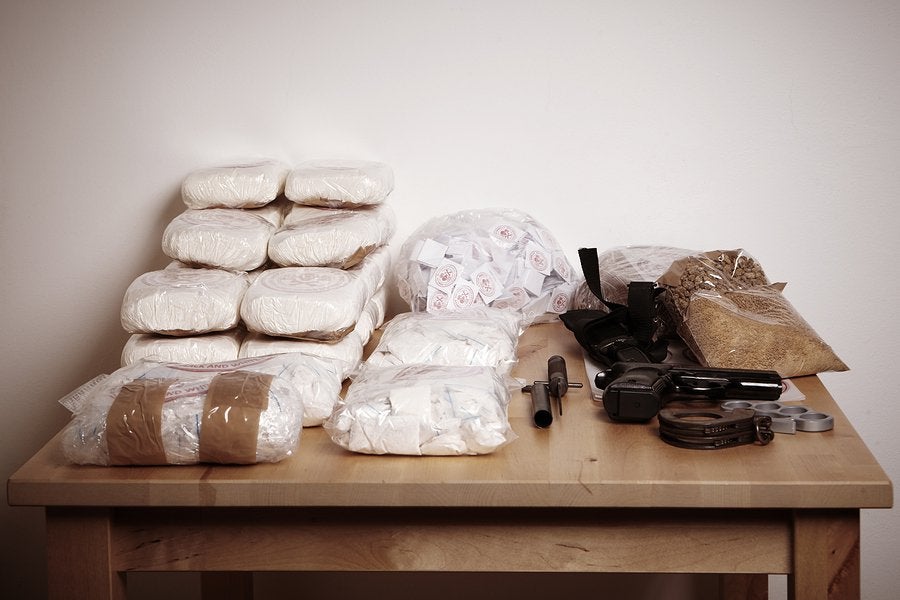-
Understanding Plea Deals in Criminal Cases
If you’ve been arrested for a criminal offense, such as drug charges, and you live in Annapolis, there is no guarantee that your case will go to trial. If the prosecutor thinks that his or her evidence against you is weak, then there is a possibility that the charges will not be pursued. Even if the prosecutor does pursue your case, your criminal lawyer might raise the possibility of plea bargaining. A plea deal isn’t right for every defendant. You’ll need to carefully consider this option with the help of your criminal lawyer.
Definition of Plea Bargaining
Plea bargaining is a way for a criminal case to be resolved without the need for a criminal trial. A plea deal requires that both the prosecutor and the defendant arrive at an agreement. In this agreement, the defendant enters a guilty plea with the criminal court system.
Benefits of Plea Deals
It might seem disadvantageous for a defendant to enter a guilty plea without being represented at a trial, but there are certain benefits to this arrangement. Usually, plea deals involve the defendants pleading guilty to lesser charges that carry lighter sentences. For example, the defendant might plead guilty to driving while under the influence (DUI) instead of aggravated DUI. Alternatively, a defendant might plead guilty to the original charge with the understanding that the prosecutor will recommend a light sentence to the judge. The main benefit of plea deals for defendants is that it’s possible they will receive less time behind bars or an otherwise less severe legal punishment. Some defendants prefer plea deals because the outcome of a trial is uncertain and it’s possible that should a trial result in a conviction, the defendant would face harsher penalties. Additionally, criminal trials can bring unwanted publicity for the defendant.
Drawbacks of Plea Deals
If you’re considering accepting a plea deal, it’s important that you fully understand the potential drawbacks. The prosecutor may promise to recommend a light sentence, but you should know that the judge isn’t bound by these recommendations. If you plead guilty, the judge could still decide to sentence you to the maximum allowed penalty. Additionally, there is always a chance that a trial would result in an acquittal. Before making your decision, carefully discuss this matter with your criminal lawyer.

Disclaimer: This article provides general information about the topics discussed and does not qualify as legal advice. Every case is different and the laws applicable to each case may differ. If you have a legal matter, you should speak to an attorney to get advice on your particular situation.
-
Are You Obligated to Take a Field Sobriety Test?
If a police officer pulls you over on suspicion of traffic violations, he or she may request that you step out of the car and perform field sobriety tests. These tests include tasks such as walking heel-to-toe in a straight line. They are intended to provide further probable cause for police officers to arrest you and charge you with DUI or aggravated DUI in the Annapolis area. Unfortunately, it’s entirely possible for people who are not intoxicated to fail these tests, particularly when it’s nighttime and the individual is disoriented from having been pulled over.
As you’ll learn when you watch this video, field sobriety tests are not the same as chemical tests. Unlike chemical tests, it is not mandatory for a person to submit to field sobriety tests in Maryland. If you could be facing DUI or aggravated DUI charges, you have the right to request to be taken in for a chemical test instead. You also have the right to call a criminal lawyer if you are arrested.
Disclaimer: This article provides general information about the topics discussed and does not qualify as legal advice. Every case is different and the laws applicable to each case may differ. If you have a legal matter, you should speak to an attorney to get advice on your particular situation.
-
Proving Liability in a Truck Accident Case

Every accident case involves unique issues , but to prove liability, there are a few basic elements that must be present in the case. The defendant must be shown to have breached his or her duty to exercise reasonable care toward the plaintiff and that breach of duty must have caused the plaintiff’s injuries. To demonstrate these elements, a personal injury attorney located in Annapolis may gather physical evidence such as police reports, traffic camera footage, and medical records. The injury lawyer can also interview eyewitnesses; their statements may substantiate the claims of the plaintiff.
When reviewing the available evidence, the injury lawyer will look for acts of negligence or recklessness that the defendant may have committed. For example, the police reports may indicate that the truck driver was speeding, following too closely, or not obeying traffic signals. In some personal injury claims that involve truck accidents, other defendants may be named, such as the truck company or the manufacturer of truck parts. An injury lawyer may use internal records from those defendants to assess liability.
Disclaimer: This article provides general information about the topics discussed and does not qualify as legal advice. Every case is different and the laws applicable to each case may differ. If you have a legal matter, you should speak to an attorney to get advice on your particular situation.
-
A Closer Look at Drug Manufacturing Charges
Drug charges are taken very seriously in state and federal courts. Illegal drug manufacturing in particular can lead to a lengthy term behind bars compared to simple possession charges. If you’ve been arrested on drug charges near Annapolis, it’s in your best interests to contact a criminal lawyer as soon as possible. Your lawyer will explain how the law applies to your case and what the potential legal penalties are if you’re convicted.
Criminal Codes
Drug manufacturing charges are covered under Maryland criminal code section 5-603 . This statute explains that in the state, it is illegal for a person to manufacture a controlled dangerous substance. It is also illegal for a person to possess, manufacture, or distribute any piece of equipment, machinery, or instrumentation that can be used or adapted to manufacture a controlled dangerous substance. A person can be convicted if he or she is determined to have dealt with this sort of equipment in circumstances that would cause someone to reasonably believe that the defendant had the intent to use the equipment to produce, sell, or dispense a controlled dangerous substance.

Potential Penalties
Drug manufacturing charges are typically prosecuted as felonies, compared to the misdemeanor charges that are typical of simple possession cases. Your criminal lawyer will let you know what the specific penalties are for your case. Depending on the exact charges, you could be facing up to five years in prison and a fine of up to $15,000. For a second offense, you could face a mandatory minimum of two years behind bars without the possibility of parole. Other related felony charges could result in up to 20 years in prison and a fine of up to $25,000. Repeat offenders can be sentenced to no fewer than 10 years in prison and a fine of up to $100,000.
Defense Strategies
Defending from a charge of drug manufacturing is often more complicated than developing defense strategies for a possession charge. However, there may be ways of mitigating the circumstances. It might be possible to argue that the manufacture of the drugs was for personal use only, rather than for sale or distribution. If the defendant was found with the ingredients for drug manufacturing, but no finished product, then it may be possible to argue that the ingredients were intended for legitimate purposes.
Disclaimer: This article provides general information about the topics discussed and does not qualify as legal advice. Every case is different and the laws applicable to each case may differ. If you have a legal matter, you should speak to an attorney to get advice on your particular situation.
